Virtual appointments for canadians ONLY!
A Key to Reducing Emissions and Increasing Energy Efficiency
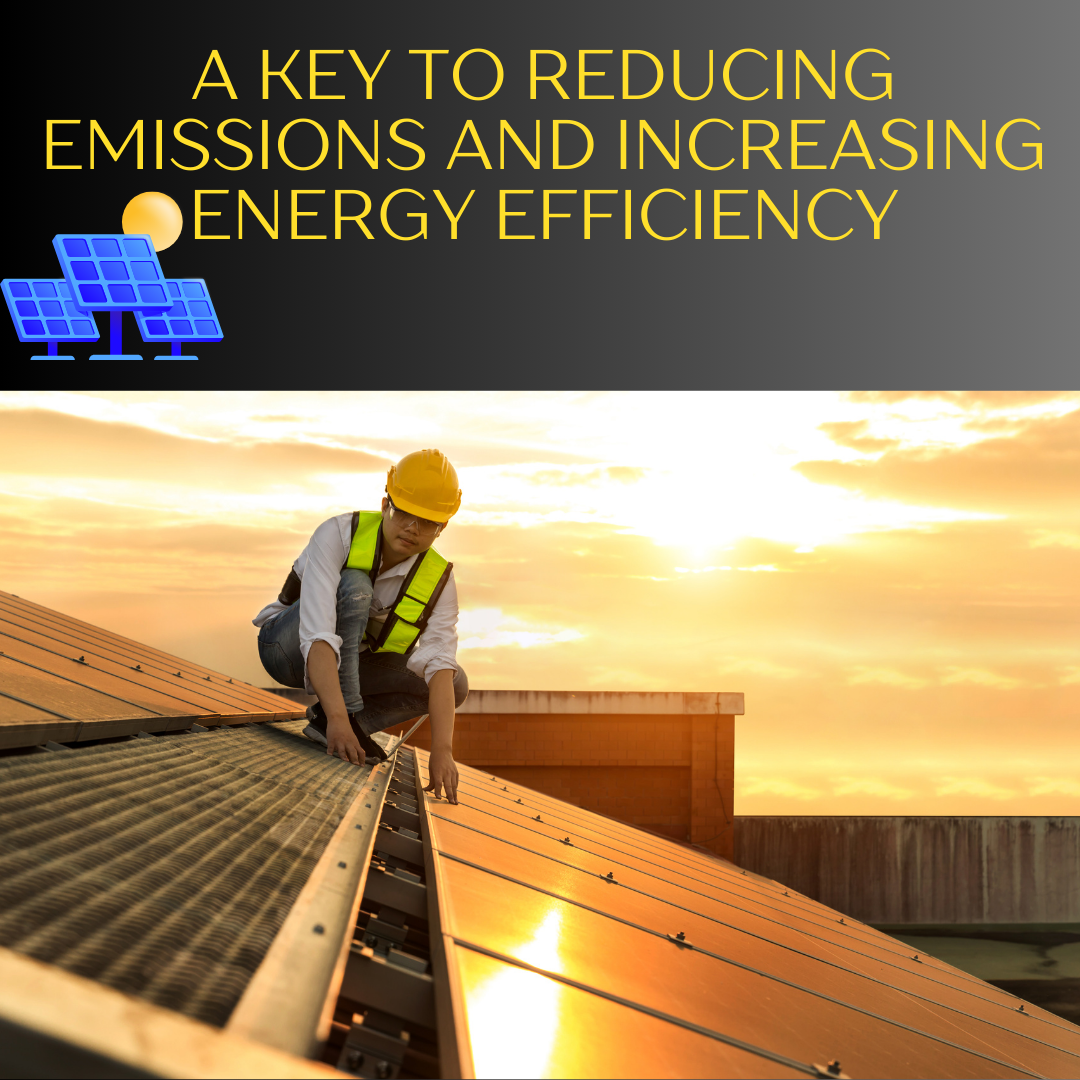
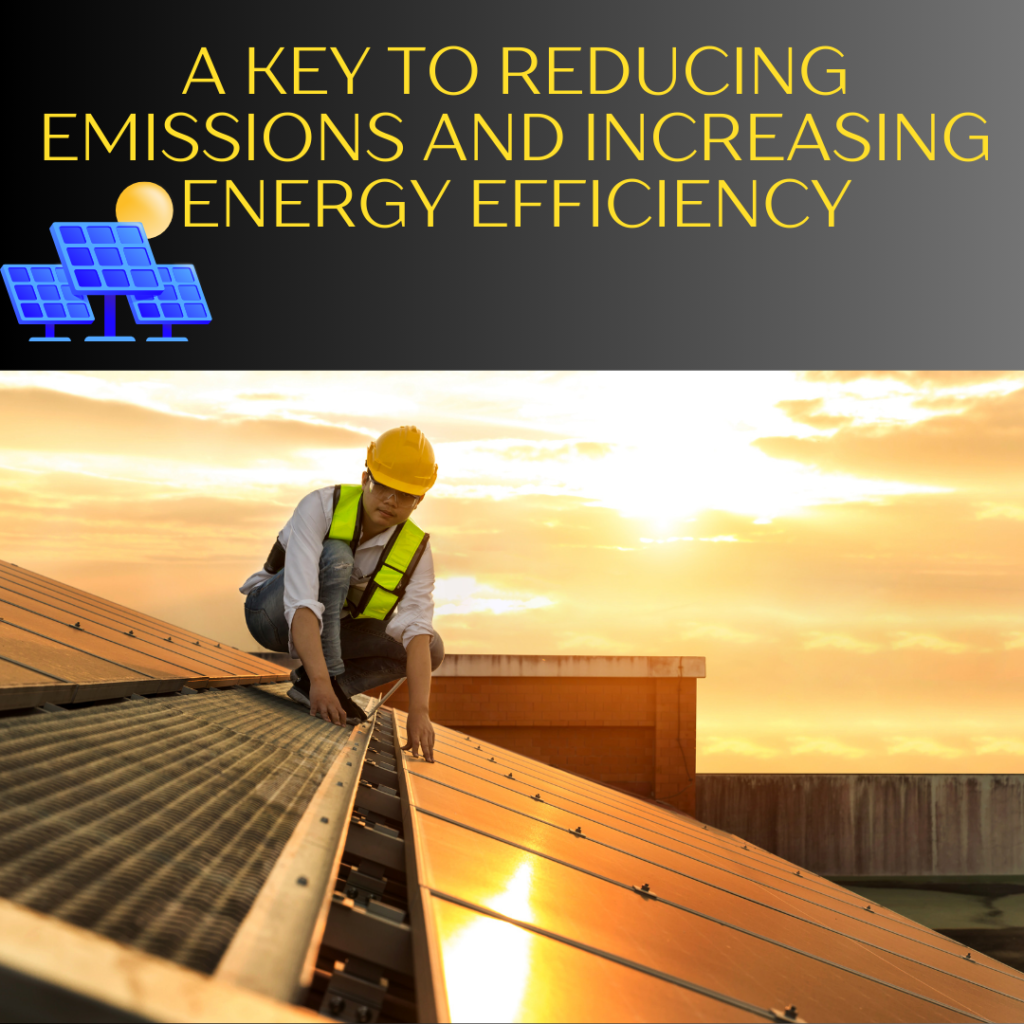
Solar energy is rapidly growing and a key to Reducing Emissions and Increasing Energy Efficiency as a renewable power source, transforming the way we generate electricity without contributing harmful emissions to the atmosphere.
With advancements in energy efficiency and the integration of technologies like inverters, solar panels have become an increasingly viable and sustainable energy solution for both homeowners and businesses.
Additionally, incentives and rebates are available to support those investing in this green technology, making solar power even more accessible.
Solar Energy: Reducing Greenhouse Gas Emissions
Solar energy is a highly efficient, low-carbon energy source that produces no greenhouse gas emissions during operation. Solar panels convert sunlight into electricity through photovoltaic cells, a clean process that releases zero pollutants, such as carbon dioxide, into the environment.
This makes solar power an invaluable resource for reducing air pollution and combating climate change.
Because solar panels harness the sun’s natural energy, they are an eco-friendly power source with minimal environmental impact.
The installation of solar panels on rooftops or in open fields helps to lower household and business energy costs, supports local job growth in the renewable energy sector, and contributes to healthier communities by significantly cutting air pollution levels.
Countries like the United States, China, and Japan are making strides in solar energy production, helping to reduce global greenhouse gas emissions and create a cleaner planet.
As the demand for solar energy rises, and technology continues to improve, solar power will remain an essential part of a sustainable future.
Solar Panels and Inverters: Reducing Air Pollution While Increasing Efficiency
One of the key advantages of solar panels is their ability to reduce air pollution by providing a clean, renewable alternative to fossil fuels like coal and natural gas. Solar panels, with the help of inverters, convert sunlight into electricity to power homes, businesses, and public infrastructure without the need for fossil fuels.
Not only do solar panels cut emissions, but they also offer high energy efficiency due to innovations in inverter technology, which enables more effective conversion of solar power.
By using energy from the sun rather than burning fossil fuels, solar panels reduce harmful carbon dioxide and other greenhouse gases. With incentives and rebates now available, solar panels are also a more affordable option for homeowners and businesses seeking to transition to sustainable energy.
Preserving Natural Resources with Solar Panels
Natural resources are becoming more scarce, and traditional energy production has contributed to the depletion of vital resources like water, forests, and fossil fuels. Solar energy offers a sustainable alternative that doesn’t rely on these finite resources.
By generating clean power from the sun, solar panels can help conserve natural resources and lessen the environmental burden caused by energy production.
Solar energy also plays a critical role in water conservation. Unlike conventional power plants, which require significant amounts of water for cooling, solar panel systems need little to no water for operation. In arid regions or places facing water scarcity, this benefit is invaluable.
Solar power can even support electricity generation in remote areas lacking access to fossil fuel infrastructure, helping communities reduce their dependence on coal and oil.
Incentives and Rebates for Solar Energy
Governments around the world are encouraging the adoption of solar energy by offering various incentives and rebates. These financial incentives make the installation of solar panels more affordable, lowering upfront costs and helping homeowners and businesses save on electricity bills.
With additional incentives for energy-efficient appliances, such as energy-efficient furnaces and air conditioning systems, these programs promote an all-around greener lifestyle.
Many states and countries provide tax credits, grants, and subsidies for solar panel installation, allowing individuals to offset their initial investment and reap long-term energy savings.
These incentives not only reduce the overall cost but also encourage communities to prioritize energy efficiency and sustainability.
Addressing Solar Panel Production and Disposal
While the benefits of solar power are substantial, it is essential to address certain environmental concerns associated with solar panel production and disposal.
The manufacturing of photovoltaic cells requires energy and, in some cases, hazardous materials like lead or arsenic. Proper recycling practices and responsible manufacturing can help mitigate these impacts.
Solar panels also have a limited lifespan, typically ranging from 15 to 30 years. As technology advances, older panels may need to be replaced with more efficient models, potentially leading to waste if disposal isn’t managed correctly.
It’s crucial to support recycling programs that repurpose materials from retired panels, minimizing waste and keeping hazardous substances out of landfills.
Solar Panels: A Path to a Sustainable Future
The potential of solar energy to provide clean, renewable power is undeniable. From reducing air pollution and preserving natural resources to creating jobs and supporting community health, solar panels are a vital solution to global environmental challenges.
By taking advantage of available incentives, rebates, and technological advancements, individuals and businesses can adopt solar power and contribute to a greener future.
Investing in solar energy and energy-efficient technologies, such as modern inverters and smart thermostats, enables individuals to reduce their carbon footprint and minimize their environmental impact while enjoying the benefits of modern conveniences.
As we move toward a cleaner, more sustainable world, solar power stands out as a beacon of hope for future generations.
Switching to solar energy is more than just a cost-saving decision—it’s an investment in a healthier planet, a more resilient energy grid, and a brighter future for everyone.

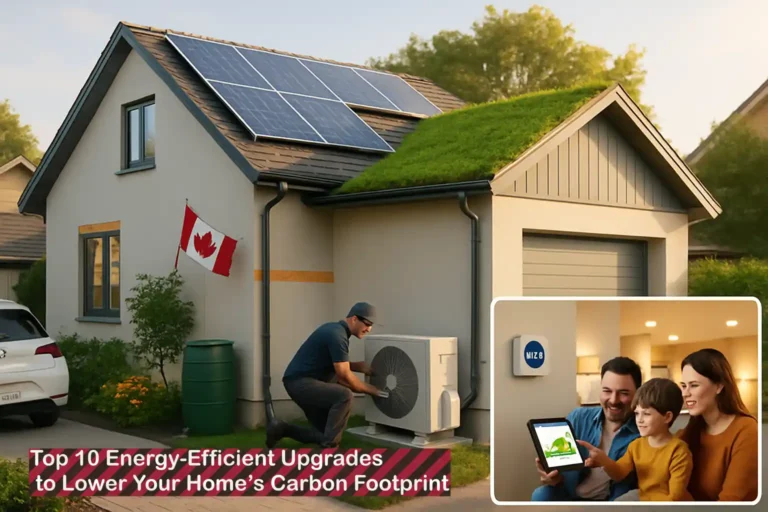
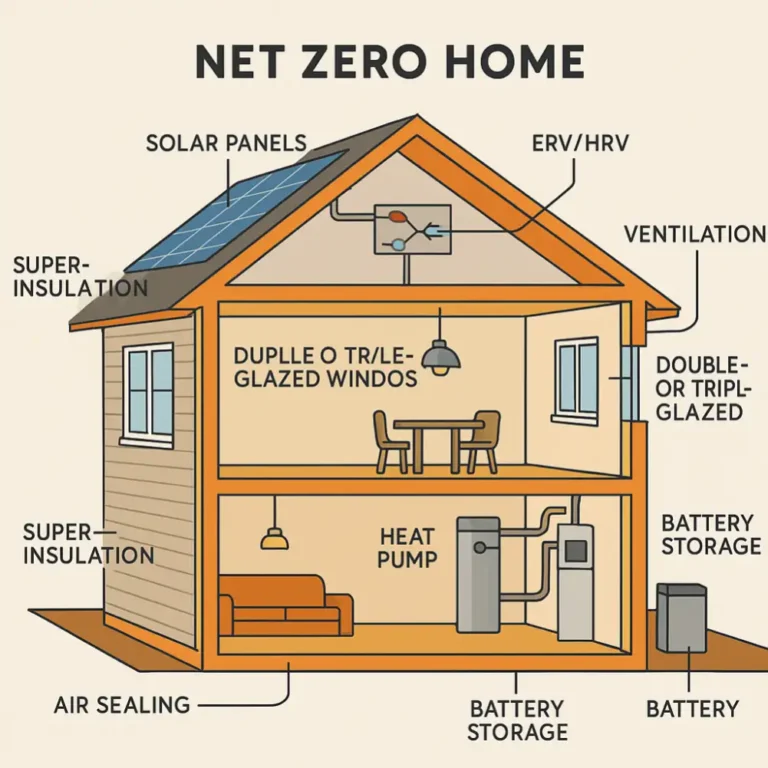

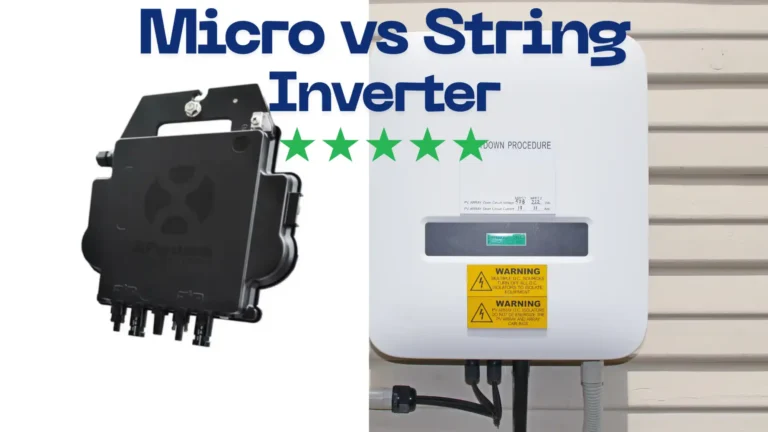
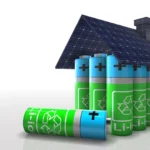



[…] Additional Benefits of Solar Panels […]
[…] Energy Storage Contributes to Climate […]